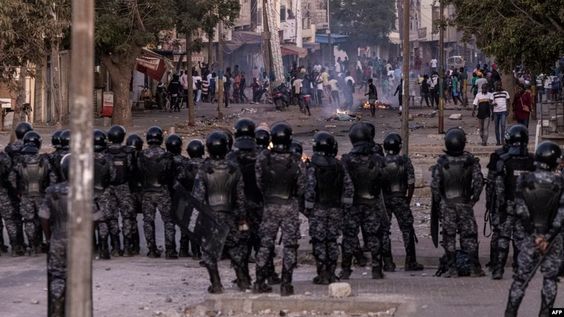Africa
Government of Senegal Limits Mobile Internet Access Amid Deadly Riots

The government of Senegal has cut access to mobile internet services in certain areas due to “hateful and subversive” online messages posted during lethal riots, according to a statement released on Sunday.
The West African nation has been devastated by three days of violent protests that have resulted in the deaths of sixteen people, marking one of its most deadly outbreaks of civil unrest in decades.
The government restricted access to certain messaging platforms last week, but many were able to circumvent the restriction by using virtual private networks that conceal the user’s location. The outage was expanded on Sunday to include all data on mobile internet devices in specific locations and at specific periods, according to a statement.
It did not specify which areas or times were affected, but five Reuters correspondents in Dakar were unable to access the Internet without a wifi connection on Sunday afternoon, a time of day when protests typically begin to gain momentum.
“Because of the spread of hateful and subversive messages,… mobile Internet access is temporarily suspended during certain hours of the day,” the statement read.
Thursday’s sentencing of popular opposition leader Ousmane Sonko in a two-year-old rape case sparked the unrest. His supporters claim that the prosecution was motivated by politics, and he has denied any misconduct.
On Thursday, he was judged not guilty of rape but guilty of corrupting a minor and sentenced to two years in prison. This sentence may prevent him from standing for president in the February election, and protesters have responded to his appeal to challenge the authorities.
President Macky Sall’s refusal to rule out standing for a third term has also enraged protesters. There is a two-term presidential limit in Senegal.
Reuters
